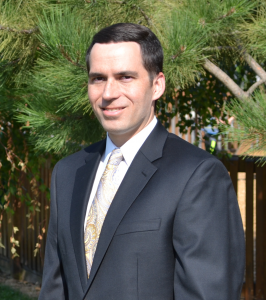
by Wilton H. Strickland
To state the obvious, lawyers have a bad reputation. What’s not so obvious is why. The vast majority of other lawyers I have worked with or against are decent folk: they work hard for their clients; they bill honestly for services rendered; they actively participate in their communities; and they often volunteer services and advice to those in need. Doubtless, there are some bad apples out there, but the same can be said of any bunch. So, what explains the popular disdain for one profession? After mulling it for a while, I have come up with a few possible reasons. If anyone out there can shed more light on this, please do!
Analytical And Argumentative
I plead guilty to this one. When I’m engaging in an otherwise casual conversation and hear someone make an assertion that strikes me as unfounded or ridiculous, it’s difficult for me to let it go. For example, I might be having drinks with a group of friends when one of them ventures, “They oughta lock him up and throw away the key!” Most normal people would simply laugh and move on to the next subject. I, on the other hand, may very well ask why everyone is so sure the man is guilty. Or even if guilty, why he deserves life imprisonment. Or why community service isn’t a better option. This usually provokes groaning.
Negative
I also plead guilty to this one, but there is an extenuating circumstance: the job requires it. As lawyers we are paid to explore, guard against, and deal with things that go wrong. Whether it’s hammering out a prenuptial agreement when nobody want to think of divorce; or drafting a conflict-resolution clause for a hopeful new business venture; or picking apart a complaint to identify a client’s maximum possible damages exposure, unpleasant things constitute our stock-in-trade. Trust me when I say that you do not want an optimist handling these things for you. Our motto must be “expect the worst but hope for the best.”
Mercenary
There is a popular perception that lawyers will represent anyone no matter how loathsome, and make any argument no matter how baseless or inconsistent, simply to collect a fee. Even “Honest Abe” Lincoln was caught making inconsistent arguments in his days as an advocate — a judge who heard Mr. Lincoln argue on behalf of a client in the afternoon interjected that Mr. Lincoln had argued the exact opposite for a different client in the morning, to which Mr. Lincoln responded that he had been wrong the first time.
Be that as it may, I plead not guilty to this one for a host of reasons.
For one, we have an ethical obligation — enforceable by sanctions — to make only such arguments that have a plausible basis in the facts and the law. We also have an ethical obligation to be zealous advocates for our clients, so it is unavoidable that we sometimes take inconsistent stances on behalf of different clients where the law is unsettled. Outright frivolous arguments are rare, and mechanisms exist to deal with them if necessary.
Second, the “loathsome” among us are the ones who have the greatest need for representation. Those whom the public celebrates and esteems have much less to fear, and I submit that the legal profession is at its best when coming to the aid of individuals condemned as the worst. There have been many cases where those condemned are later vindicated, and I encourage everyone to imagine the horror of having the entire world despise you for something you know you didn’t do. That’s when you need a lawyer.
And third, we have the right and the duty to refuse to represent someone under a variety of circumstances where doing so would be unethical or unlawful. We cannot represent just “anyone,” so that perception needs to be put to rest.
Conclusion
These are the best reasons I can come up with to explain why so many people instinctively dislike members of my profession. As I said before, though, I would love to hear what anyone else has to say on the subject. If there’s a way for us to burnish our image in the public’s eyes, I’m all for it!


